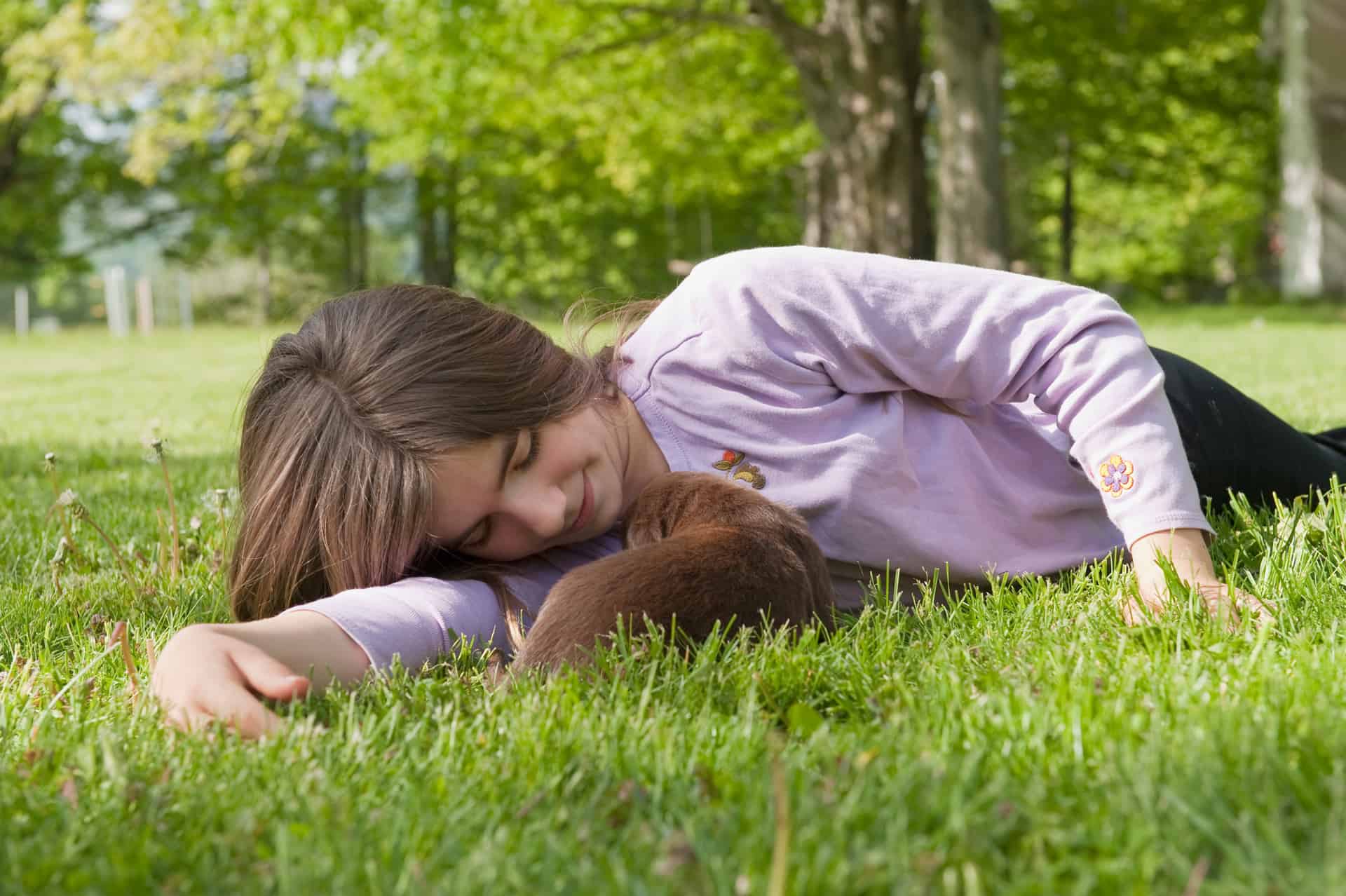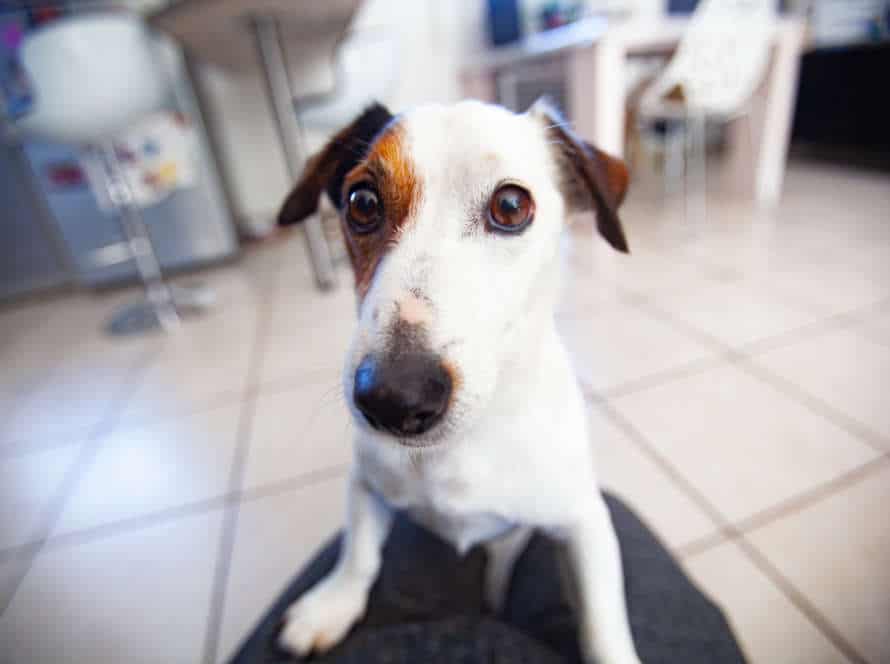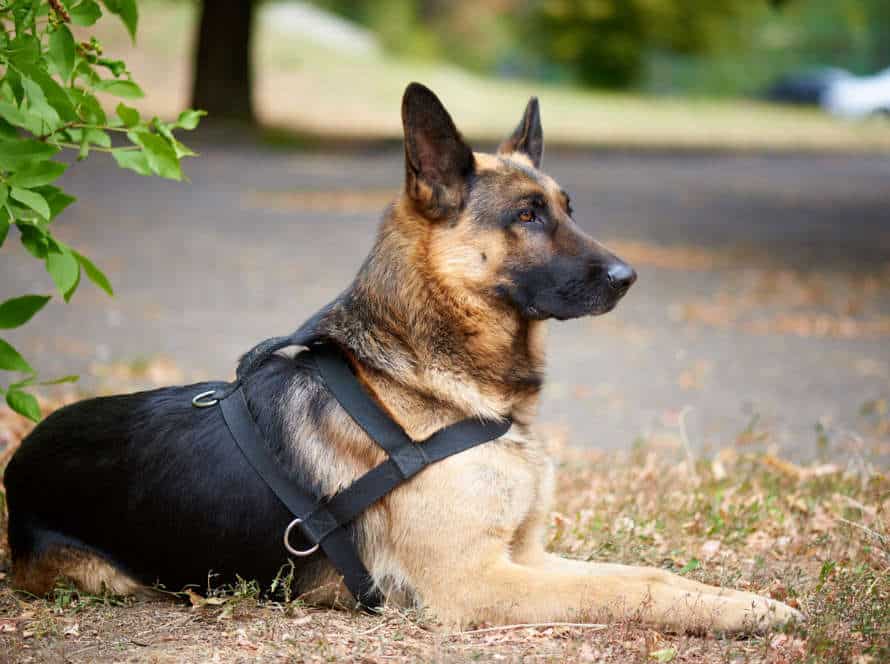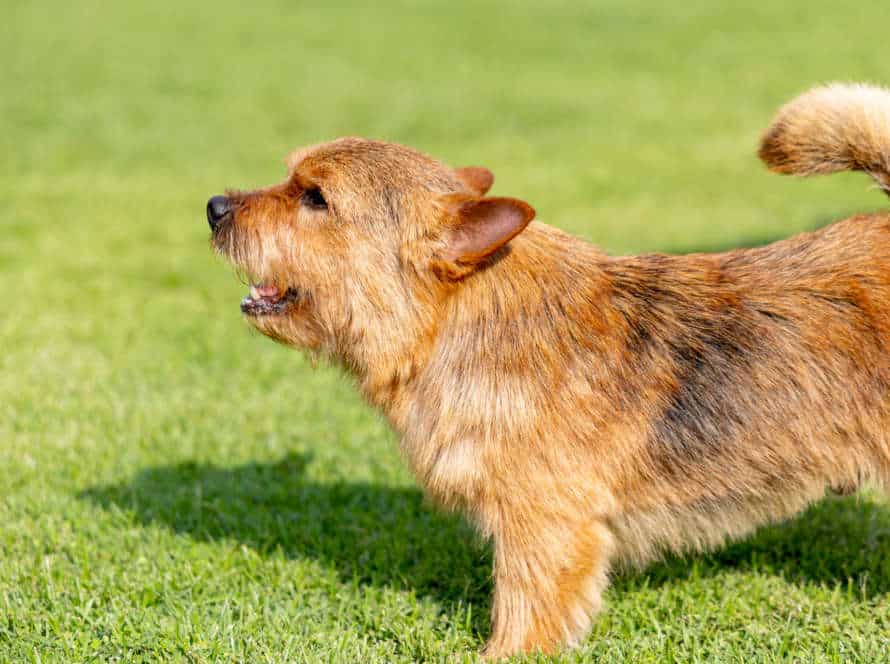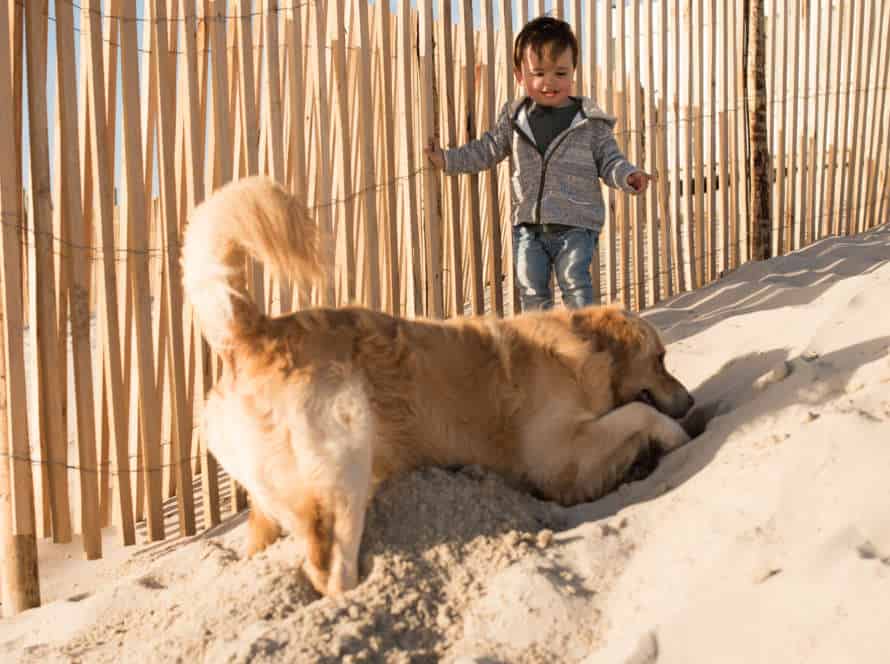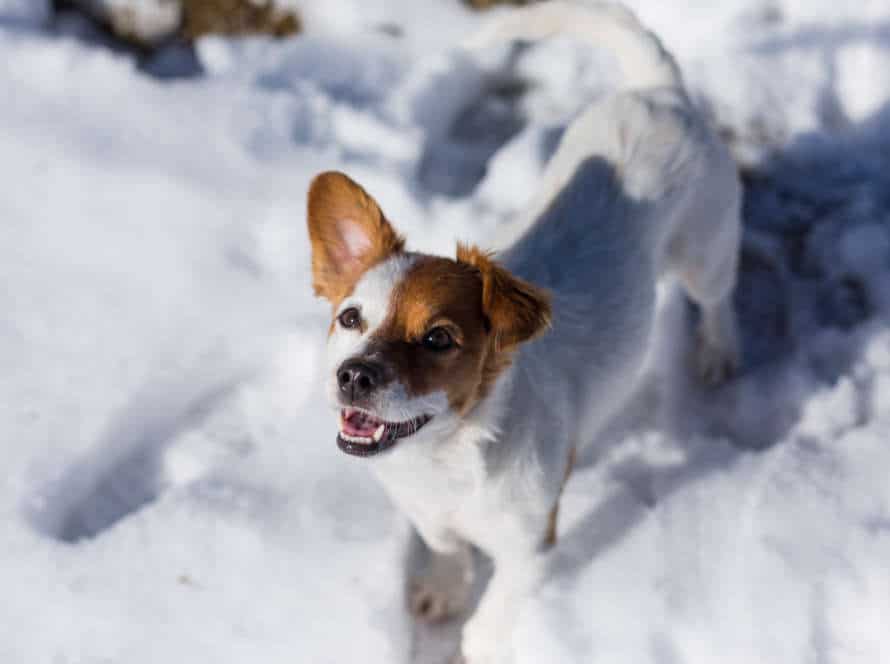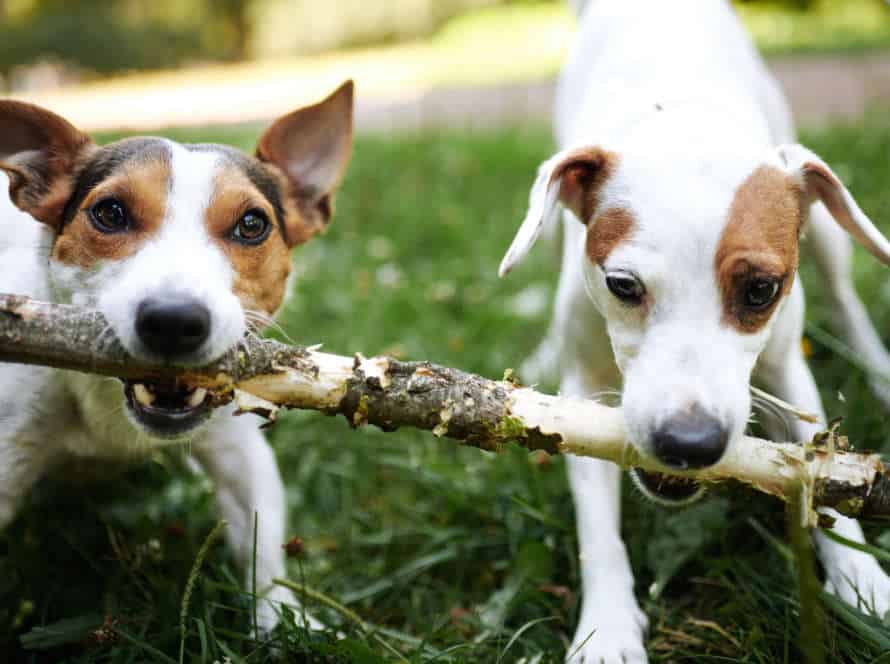Building a Strong Bond with Your Puppy to Discourage Digging
Developing a solid connection with your pup is important to stop digging behavior. Puppies might dig when they are bored, anxious, or seeking attention. By strengthening the emotional relationship between you and your pup, you can address the source of the digging and stop it from happening in the future.
Here are some tips to build a strong bond:
- Spend quality time with your pup – play and interact.
- Follow a regular routine – like feeding, walking, and playtime.
- Utilize positive reinforcement to reward good behavior and discourage bad behavior.
- Stimulate your pup mentally with toys, puzzles, and training exercises.
- Train obedience, teaching your pup basic commands and how to act in different scenarios.
Pro tip: Don’t forget that building a strong bond requires time and patience. By investing in your pup’s emotional health, you’ll improve your relationship and avoid unwanted actions like digging.
Understanding Your Puppy
Your puppy isn’t born with certain behaviors. They are formed by you and the people they meet. Creating trust and a strong connection with your puppy is essential for preventing digging behaviors. To do this, you need to know why they act the way they do, and what things make it worse. Let’s look closer at understanding your puppy and how to build a safe bond with them.
Learning about your puppy’s breed characteristics
To develop a strong connection with your pup and prevent undesirable behaviors, like digging, it is important to understand their breed traits.
Here are some popular breed specifics to be aware of:
- Terriers: Jack Russel and Rat Terriers have a strong desire to hunt, which can lead to digging. Also, they need lots of exercise and mental stimulation for their well-being.
- Hounds: Beagles and Basset Hounds have a great sense of smell. They could dig for fun or to follow a scent.
- Working Breeds: German Shepherds and Huskies need plenty of exercise and mental stimulation. If they are not active enough or left alone for too long, they may dig.
- Toy Breeds: Chihuahuas and Pomeranians may dig to make a comfy den for themselves. In addition, they are known to be vocal.
By knowing your pup’s breed characteristics, you can customize training and activities that fit their needs. This will nurture your bond and reduce bad habits like digging.
Understanding your puppy’s temperament
Grasping your pup’s temperament is vital to forming a solid bond with your adorable pal and avoiding undesirable behavior, like digging. It also helps you provide better for their separate needs and preferences.
Here’s some knowledge about puppy temperaments and how they affect behavior:
- Confident – Outgoing and independent, confident pups like to explore their environment and connect with people and other animals.
- Timid – Shy and reticent, timid puppies may take more time to get accustomed to novel people and situations and likely need extra socialization.
- Active – Spirited and lively, active puppies must have lots of activity and playtime to stop boredom and destructive conduct.
- Quiet – Calm and docile, quiet puppies may be less demanding of attention but still require regular workouts and mental stimulation.
Understanding your puppy’s temperament is the initial step in constructing a strong and healthy relationship with them. By adjusting your coaching, exercise routines, and general care to your puppy’s unique personality, you can make sure a cheerier, healthier life for both you and your adorable friend.
Identifying the reasons why your puppy is digging
It is important to identify the reason why your pup is digging. It may be due to boredom, curiosity or something else. Here are some other reasons why pups dig:
- Boredom: If left alone for too long, or not given enough stimulation, a pup may dig to release their energy.
- Curiosity: Pups may dig to investigate new smells and textures.
- Comfort: They may dig a hole to stay cool on a hot day.
- Hunting: They may have an instinct to dig and search for prey.
To build a strong bond with your pup and stop them from digging, you must be consistent and use positive reinforcement. Give them lots of attention and exercise, and encourage them to do appropriate activities instead.
Building a Strong Bond through Training
Forming a powerful link between you and your pup is very important. It enables effective communication and learning. To build this connection, give quality training and positive reinforcement. Training is crucial. It assists in forming a strong bond and can help reduce problems like digging.
Enjoy the bonding experience with your pup – let’s explore the various training exercises and strategies to create a strong bond.
Positive reinforcement training techniques
Positive reinforcement training is a great way to make a strong bond with your puppy and stop it from digging. Here are some positive reinforcement techniques:
- Clicker training: Mark the desired action with a clicker and reward your puppy with treats or compliments.
- Treat-based training: Offer rewards for good behaviour like obedience, and discourage negative behaviour like digging.
- Verbal praise: Use a positive and cheerful tone to encourage good behaviour and discourage bad habits such as digging.
- Reward-based training: Reward your puppy’s good behaviour with positive reinforcement, like playtime or extra attention.
By practicing positive reinforcement techniques, you can build a strong bond and teach your puppy the right behaviours, as well as stopping it from digging.
Socializing your puppy
Socializing your puppy is vital for a strong bond and good behavior like digging. Here are some tips:
- Take your pup to different environments and social settings. This helps them get used to new people, animals, and sounds.
- Reward good behavior and help your puppy avoid negative experiences when interacting with other dogs and people.
- Teach basic commands, such as “sit,” “stay,” and “come”. This gives your puppy structure and builds trust between you and your pet.
- Spend quality time with your puppy. Play and teach them new tricks.
By socializing and training your puppy, you can build a strong bond and decrease the likelihood of unwanted behaviors like digging.
Setting boundaries and limits for your puppy
Establishing limits for your pup is key for a great training relationship. Here are some tips to help you:
- Create a routine for food, water, play, and rest.
- Teach the pup basic commands like “sit,” “stay,” and “come,” using treats and praise.
- Use a crate or playpen to control any destructive behavior.
- Supervise your pup outdoors to avoid digging; redirect to a designated spot or provide toys.
- Be consistent and patient while training; this builds trust and respect.
Providing Proper Stimulation and Exercise
Digging is normal for puppies. To stop it becoming a problem, provide stimulation and exercise. Dogs need mental and physical activities to stay interested. Here, we discuss how to give your pup the right amount of stimulation and exercise. This helps with bonding and stops the digging.
Exercise and playtime recommendations for your puppy’s breed
Different breeds of puppies need different levels of exercise and playtime for physical and mental stimulation. Here’re some tips for common puppy breeds:
- Large Breeds – Labrador Retriever, German Shepherd – need much exercise to avoid restlessness and bad behaviour. 60-90 minutes daily of running, swimming and playing fetch is recommended.
- Small Breeds – Chihuahua, Shih Tzu – need less exercise but still need regular playtime. 30-60 minutes of walks, chase games and obstacle courses are a good idea.
- Brachycephalic Breeds – Pugs, Bulldogs – have respiratory issues and can overheat easily. Short 15-20 min walks or indoors playtime are safer.
Building a strong bond with your pup and stopping digging can be aided by proper exercise. Spend quality time with your pup each day with training and playtime.
Providing interactive toys and activities
Interactive toys and activities are a great way to exercise and bond with your puppy. Plus, they may stop them from digging! Here are some ideas:
- Treat-dispensing toys: Fill a toy with your pup’s fave snacks. They’ll enjoy playing and trying to get the treats out.
- Puzzle toys: Challenge their brain power with puzzles. Hide treats in the compartments or help them find the answer.
- Outdoor playtime: Take your pup outside for walks or to the dog park.
- Training games: Play hide-and-seek or other training games. This will build their confidence and strengthen your bond.
Remember, interactive toys and activities are more than just keeping your pup entertained. They are also great for socializing – and don’t forget to switch up the toys each week to keep them interested!
Taking regular walks and visits to new environments
Regular walks and visits to new places are fab! They give your pup the exercise and stimulation they need. Plus, it creates an awesome bond between you and your pup, discouraging any digging problems.
Dogs love exploring new places and smells. Walks and visits to parks, beaches, and trails provide them the physical and mental stim they need for a fulfilled life. Plus, it strengthens the bond between you two – exploring new places is always an adventure!
Give your dog enough exercise, stimulation, and attention. This helps stop problem behaviours like digging – which can be caused by stress and boredom. So get out, go for a walk, play, or take a trip to the park. Enjoy improved bond with your pup – we recommend giving a small toy or treat for extra fun.
Managing the Environment
Puppy owners: take note! Manage your pup’s environment. Don’t let them develop bad habits. Like digging. For a strong bond, give your pup regular walks. And plenty of playtime. This way, they’re less likely to dig. Create the perfect atmosphere and protect them from danger.
Blocking access to digging areas
To stop your pup from digging in places you don’t want them to, manage their environment. Strengthening the bond between you and them is key to teaching them to avoid certain areas. Here’s how:
- Build a sandbox or specific spot in your garden for them to dig.
- Block access to spots you don’t want them to dig with fences or other barriers.
- Spend time playing and giving them plenty of attention and exercise.
- Praise and reward them for good behavior, redirecting their digging energy towards toys or treats.
Pro Tip: Boredom, anxiety, and hot weather can lead to destructive digging. Keep them entertained with playtime, training, and toys.
Creating a designated play and digging area
Designate a play and dig area for your puppy. This can help stop destructive digging and build a strong bond. Here are some tips:
- Select a spot in your yard.
- Mark the boundary with fencing, rocks, etc.
- Fill the area with sand or soil – make it comfy.
- Encourage your pup to use this spot.
- Play with toys, hide treats, give rewards.
- Be patient and consistent – redirect your pup when they start to dig elsewhere.
Building a strong bond takes time and effort – but it’s worth it in the end.
Using deterrents and distractions
Deters & distractions are a great way to control your pup’s environment & stop them from digging. Here’s a few tips to stop the digging & build a strong bond with your pup:
- Monitor your pup outside & keep them from digging by entertaining them with toys & games.
- Set up a special digging spot for your pup with soft soil & hidden treats & toys to get them to dig in one spot.
- Use deterrents like citrus sprays or motion-activated alarms to stop your pup from digging in unwanted areas.
- Spend quality time with your pup every day to form a strong bond & avoid boredom & loneliness.
Follow these tips & be consistent with training & you’ll discourage your pup from digging & have a strong, healthy relationship.
Seeking Professional Help
Is your pup’s digging getting out of hand? Seek help! Consult your vet, take your puppy to obedience classes, or hire a dog behavior specialist. These options will help you and your pup build a strong bond and figure out why they’re digging.
Consulting with a professional dog trainer
Struggling with your pup’s digging? Time to consult a pro dog trainer!
They have the know-how to help you train them away from this. Plus, they can assist in building a strong bond.
The trainer will look over your pup’s behavior and craft a custom training plan to stop the digging. They could also show you positive reinforcement tactics, like treats and praise for good behavior.
And, get you spending quality time with your pup, with attention and exercise – strengthening the bond!
Seeking help is a great step towards a happy and healthy relationship with your pup!
Seeking guidance from a veterinarian
If you’re finding it difficult to create a strong bond with your pup to prevent digging, consulting a vet is a great choice. Here’s how they can lend a hand:
- They can examine your pup’s physical and mental health to make sure any underlying issues aren’t causing the destructive behaviour.
- They can offer tips on puppy training and modify behaviour to stop digging and boost the positive relationship between you and your pup.
- They can also suggest dog toys, puzzles and other activities that stimulate their mind and discourage digging due to boredom.
Seeking help from a vet can aid in forming a strong, healthy bond with your pup and decrease undesired behaviour like digging.
Considering behavioral therapy options.
Digging is a habit of pups, which can be tough for owners to deal with. To handle this and build a good relationship with your pup, you can use behavioral therapy. Here are some tips:
- Spend quality time with your pup daily – walks, play and training.
- Make sure to give your pup enough exercise and mental stimulation – like puzzle toys and agility games.
- Create a digging area in your yard with loose soil or sand, and redirect your pup’s digging to that area.
- Don’t punish or shout at your pup for digging, as it can cause anxiety.
- Consult a dog trainer or behaviorist for a personalized plan to stop the digging and build your bond.
Frequently Asked Questions
Q: How can I discourage my puppy from digging in the yard?
A: Building a strong bond with your puppy can help discourage digging. Spend quality time with your puppy and provide plenty of exercise and mental stimulation.
Q: Why do puppies dig in the yard?
A: Puppies may dig in the yard for a variety of reasons, including boredom, stress, or an instinctual desire to explore and dig. It’s important to identify the underlying cause of the behavior in order to effectively discourage it.
Q: Can I train my puppy not to dig?
A: Yes, you can train your puppy not to dig. Consistency is key. Provide your puppy with a designated spot to dig, discourage digging in other areas, and reward good behavior.
Q: What should I do if my puppy continues to dig despite my efforts?
A: If your puppy continues to dig despite your efforts to discourage the behavior, consult with a professional dog trainer or behaviorist for additional guidance.
Q: Will punishing my puppy for digging be effective?
A: Punishing your puppy for digging is not an effective way to discourage the behavior. Instead, focus on positive reinforcement to reward good behavior and build a strong bond with your puppy.

